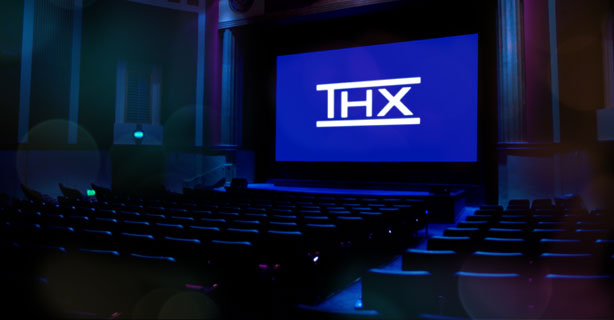Video game hardware and lifestyle brand Razer continues to expand its portfolio. The company, which has a valuation of $1.5 billion, just acquired THX, the sound performance company founded by George Lucas in 1983. Financial details of the transaction, which closed earlier this month, were not disclosed.
THX will operate as an independent startup under its own management and apart from the ongoing business of Razer. While the audio technology business will work with Razer, THX will have the freedom to work with other product makers, service providers and financial partners.
While THX originated as a certification program for entertainment experiences in the cinema, it has expanded to the home and mobile. Most recently, the company has added automotive systems and THX Live!, a live-entertainment certification program that premiered at Beyoncé’s 2016 Formation World Tour.
On the heels of its acquisition of the assets from OUYA, Razer has expanded its business over the past few years beyond gaming headphones into Razer Music. Audio plays an increasing role across multiple Razer projects, which opens new opportunities for THX.
Min-Liang Tan, co-founder and CEO of Razer, talks to [a]listdaily about this latest acquisition in this exclusive interview.

What has your experience been like with THX?
The THX audiovisual designers and engineers are the most talented of their kind in the world. I can suggest this with some authority, having personally worked with Laurie Fincham and his team when we embarked on the Razer THX Mako project, which was released in 2008.
What does THX open up for OSVR and Razer’s virtual reality investments, given how important sound is in VR?
THX and OSVR are not specifically associated with each other, even while we are committed to the furtherance of both as long-term interests. Even so, both organizations are fundamentally concerned with enhancing sensory experience, so the proposition of their meeting at some intersection of technology in the future is absolutely possible. We will leave it up to their respective management to decide if and when that make sense.
VR as a practicable matter of business and product implementation is still in the formative stages. As such, OSVR will continue to serve its purpose as an incubator and aggregator of technology interests that will inform a truly consumer ready solution set.
THX, on the other hand, is a mature business with immediate relevance in the way of certification and the development of IP. There’s a lot more to do in this space to ensure that we bring the best audiovisual experiences to enthusiasts all over the world.
How do you see THX helping Razer’s eSports business, especially given how important surround sound is for competitive gaming?
Razer engineers, our eSports managers, athletes and fans can look forward to THX being an increasingly powerful resource for co-developing headsets and other audio products that give gamers the “unfair advantage” and the phenomenal experience for which Razer products are famous. But remember, THX will remain standalone from Razer. As such, Razer will work with THX as it has enjoyed in the past—with THX serving as a separate but psychically vested partner in innovation.
What does allowing THX to operate independently open up for Hollywood opportunities and movie theaters?
The field is wide open for THX to work in any and every area of Hollywood that makes sense. There are no encumbrances whatsoever. This should be very exciting for theaters and moviegoers alike.
What do you feel separates THX technology from competition such as IMAX, DTS and Dolby?
The massive breadth of application of the THX IP and the relevance of its certification to every audio technologist and auditorium in the world leaves it in a class by itself. It is not bounded to product types or venues. Comparing THX to other audio technology brands is tantamount to comparing Alphabet Inc. to a Samsung phone.
How can Razer help THX grow across gaming, music and entertainment given the direct audience reach it has through social and web channels?
The best thing we can do is share our expertise with the good people at THX. They have built an incredible brand, with a fervent following not unlike our own. Everything is there for THX to be socially connected: great partners, great user base [and] great content will bring it all together for this quite worthy brand.
How have things been progressing with your last acquisition, OUYA?
Amazingly, we recently published our fifth multiplatform game under OUYA Publishing. The dream of an open Android platform is alive and well.
What freedoms does Razer have as a company by not being acquired by a larger company?
We can do anything and everything that needs to be done to meet the needs of gamers worldwide in any category of interest—and we usually do. Other companies (big or small) wouldn’t possess the expertise required to do what we do correctly, regardless of financial resources or the positive disposition of fiduciaries. For those few gamer-focused businesses that might have a shot at copying us, their corporate governance and/or financial constraints wouldn’t likely allow for it.
Do you have any desire to one day be acquired, or would you rather continue to build out Razer larger through M&A?
We have always maintained that any opportunity that better allows us to improve our products and services for the benefit of gamers is worth exploring. To date, we’ve done well with exploiting the talent within our ranks and onboarding great talent from other businesses that share our passion for technological innovation, design and experience.

